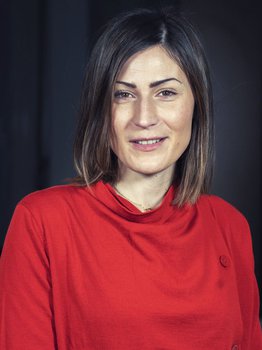Title
Relation perception and the social function of vision
Vision supports important aspects of social life. First, highly specialized visual mechanisms have evolved to process faces and bodies, conspecifics and other animals. But social life is made up of social entities as much as the relationships between these entities. The core social content is in fact relational. In a series of behavioral and neuroimaging studies, we show that perception is specialized for seeing socially relevant relationships. The results illustrate how the representation of social interaction emerges from object perception, through the analysis of the spatial relationships between multiple faces and bodies in visual scenes. Thus, visual perceptual mechanisms - and a network of visual brain areas - can give rise to the first rudimentary representation of social interaction based on the mere physical structure of input, before inferential processes kick in.
Biography
I am a cognitive neuroscientist with a PhD in Neuroscience (International School for Advanced Studies, SISSA, Trieste, Italy). My PhD thesis addressed the role of modality-specific sensory-motor systems in higher-level processes such as conceptual knowledge and word understanding, using lesion studies and behavioral tests on brain-damaged patients, non-invasive brain stimulation (TMS) and functional neuroimaging (fMRI). The thesis received two prizes, from the Italian Association of Psychology and from SISSA (2011).
In 2011, I was awarded a “Marie Curie International Outgoing Fellowship”, which funded three years of postdoc at the Department of Psychology of Harvard University. Here, in collaboration with Prof. Alfonso Caramazza and Alvaro Pascual-Leone, I studied the network dynamics supporting language and concepts. In 2014, I obtained a fellowship from the UPFellows Cofund Program of the University Pompeu Fabra of Barcelona and the European Research Council, for a four-years research program on the cognitive and neural mechanisms for action understanding, carried out at the University Pompeu Fabra of Barcelona.
In 2016, I was recruited as a tenured researcher by the CNRS and joined the Institut des Sciences Cognitives Marc Jeannerod. In 2017, I obtained a European Research Council Starting grant. At the CNRS, I have developed a research program on the representation of relations, and established the research team “Cognitive neurodevelopment”. Since 2019, our team is also member the Laboratoire d’Excellence (LabEX) CORTEX of the University of Lyon. In 2021, I was promoted to Directrice de Recherche (Full professor) at the CNRS. As a researcher, I am committed to contributing to scientific advancements as well as to using my role and position to increase equality and inclusion. The latter goal is as important to me as the former.
